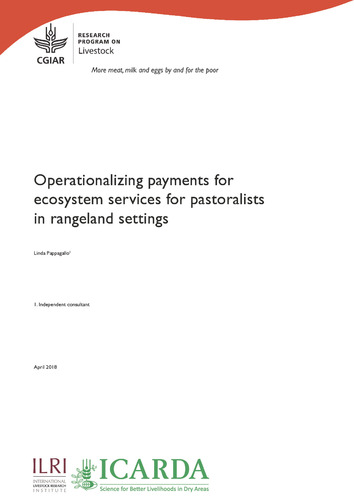Operationalizing payments for ecosystem services for pastoralists in rangeland settings
Abstract
Payments for ecosystem services (PES) schemes are gaining popularity as an environmental and development policy tool. Spurred by environmental motives, different financial and non-financial incentive schemes are designed to create positive social and environmental impact. Although the experience of PES implementation is relatively significant in the agricultural, forestry and to a certain degree marine sector, the application of PES for pastoralists in rangeland settings is limited. Furthermore, there is very little focus in the existing literature on the challenges of operationalizing PES for pastoralists. This study aims to jump from the theory of PES implementation to practice by examining the trade-offs, barriers and opportunities that can be expected when operationalizing PES schemes for pastoralists in rangeland settings. The study follows a framework that encompasses the complexities of pastoral systems—the political, legal, institutional, social, environmental and financial aspects that determine PES scheme design—and allows a critical examination of these factors. While PES schemes may offer an opportunity to bridge pastoral livelihood systems with sustainable rangeland ecosystem service provision, the variability of its impact as an effective tool calls for scrupulous context-specific assessments. An outcome of this study has been a preliminary scoping protocol, designed to guide practitioners to comprehensively unearth and evaluate the risks and opportunities of operationalizing PES schemes in different pastoral contexts. This study is particularly interesting for practitioners as it views PES implementation from a practical angle and offers resources, case-study examples, tools and complementary solutions to help overcome some of the PES implementation challenges.

